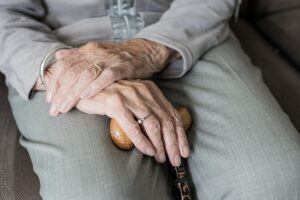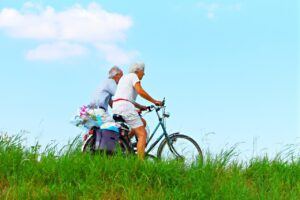As we get older, there are physical changes to be expected. Forms of deterioration is natural, but it’s always good to know beforehand, as to help avoid earlier deterioration. Here are some forms below and reasons why you should do your best to keep active as you get older, or at any age.
Musculoskeletal System Changes.
- Muscle Loss (sarcopenia): Reduced muscle mass and strength, making movements slower and balance harder.
- Bone thinning (osteoporosis): Bones become more brittle and are prone to fractures.
- Joint stiffness and arthritis: Reduced flexibility and joint pain, especially in the knees, hips, and hands.
- Postural changes: Spine may curve (kyphosis), leading to stooping or loss of height.
Cardiovascular System.
- Heart efficiency declines: Slower heart rate response to activity and increased risk of heart disease.
- Blood vessels stiffen: Can cause high blood pressure and reduced circulation.
- Reduced stamina and endurance: Fatigue can occur more easily, even with minor exertion.
Respiratory System.
- Weaker respiratory muscles: Shallower breathing and less oxygen intake.
- Reduced lung elasticity: Makes it harder to clear the lungs, increasing risk of infections like pneumonia.
Digestive and Metabolic Changes.
- Slower digestion: May cause constipation or bloating.
- Reduced appetite and taste changes: Can lead to malnutrition or unintended weight loss.
- Slower metabolism: Makes it easier to gain weight but harder to maintain muscle.
Nervous System and Cognitive Function.
- Slower reflexes and reaction time.
- Decreased coordination and balance: Increases fall risk.
- Possible memory decline or cognitive changes: Can range from mild forgetfulness to dementia in some.
Vision and Hearing.
- Vision decline: Presbyopia, cataracts, glaucoma, or macular degeneration can occur.
- Hearing loss: Especially high-frequency sounds, which effects communication and safety.
Skin and Hair.
- Skin thinning and loss of elasticity: Increased bruising, dryness and slower healing.
- Hair thinning or graying: Common in both men and women.
Immune System.
- Weakened immune response: Increases susceptibility to infections and slower recovery from illness.
Bladder and Bowel Function.
- Incontinence: Both urinary and fecal due to weakened pelvic muscles or prostate issues.
- Kidney function decline: Affects waste filtration and medication processing.
Coping Strategies.
- Regular exercise (especially strength and balancing training)
- Healthy, protein-rich diet.
- Routine medical checks and vision/hearing exams.
- Fall prevention measures at home.
- Social engagement and mental stimulation.
Read More here on exercising for all.



